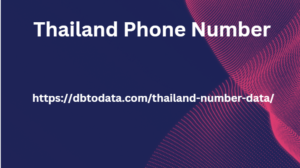Remote Work: The COVID-19 towards remote work, and telemarketing is no exception. Remote telemarketing teams can offer greater flexibility and access to a broader talent pool.
Telemarketing remains a powerful
Marketing tool, offering direct and measurable benefits for businesses. However, it is also a contentious practice that faces significant regulatory, ethical, and technological challenges. As the industry continues to evolve, telemarketers must adapt to changing consumer expectations and leverage technology to improve efficiency and personalization. By focusing on ethical practices and compliance, telemarketing can remain a viable and effective component of the broader marketing landscape.
In an age where communication technologies evolve at a breakneck pace, telemarketing remains a resilient, albeit controversial, method of direct Thailand Phone Number marketing. This industry, which involves promoting products or services via telephone calls, has undergone significant changes over the decades. While it continues to be a vital tool for businesses, it also faces increasing scrutiny from consumers and regulatory bodies. This article delves into the world of telemarketing, exploring its evolution, techniques, challenges, and the growing calls for regulation.
The Evolution of Telemarketing
Telemarketing began to take shape in the 1960s and 1970s, coinciding Australia Phone Number with the widespread adoption of the telephone. Initially, it was a straightforward means of reaching out to potential customers. Salespeople would call households to promote products, conduct surveys, or generate leads. This direct approach allowed businesses to reach a large audience efficiently.



